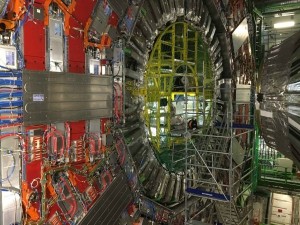McAuley Sixth Form » Subjects » Physics
Physics
New Specification What does this mean?
Why choose AQA A Level Physics?
Physics relates to the modern world of science and technology. It keeps open most career options and links well with many subjects for example Music, Geography, Mathematics, Biology, Chemistry, Electronics, and Sports Studies. Physics is the second most requested A- Level to study in terms of university entrance requirements, it teaches a combination of skills and knowledge.
Back to topWhat will I learn in the first year of A Level Physics and how will it be assessed?
First year of A-level (AS Level)
3.1 Measurements and their errors.
3.2 Particles and Radiation
3.3 Waves
3.4 Mechanics and Materials
3.5 Electricity
Paper 1 (50%)
Paper 2 (50%) including questions on practical skills.
6 practical activities
The school’s policy is that all students enrolling onto this course will be entered for the full A Level examination at the end of Year 13, taking the AS exam at the end of Y12 is an option for some students. Please visit the FAQs for more information on specifications, their UCAS tariff points and their ‘decoupling’ of AS/A2 grades.
Back to topWhat will I learn in the second year of A-Level Physics and how will it be assessed?
Second year of A-level
3.6 Further Mechanics and Thermal Physics
3.7 Fields and their consequences
3.8 Nuclear Physics
Options:
3.9 Astrophysics
6 practical activities
This is a new specification subject. The overall result for each student completing this course to the full A Level standard will be based on the end of Y13 examinations alone. ie The AS result from Year 12 will not contribute to the overall A2 grade. Please visit the FAQs for more information on new specifications, their UCAS tariff points and their ‘decoupling’ of AS/A2 grades.
At the end of Y13, assessment will be as follows:-
Paper 1 (34%) Year 1 content, plus Further Mechanics from Y2
Paper 2 (34%) Year 2 content (minus Further Mechanics and Astrophysics)
Paper 3 (32%) Astrophysics and questions on practical skills.
How will I learn?
You will learn through opportunities to:
- Discuss your work in pairs and groups
- Make presentations to the class
- Work independently on written tasks
- Carry out research and work on group or individual projects
- Take part in workshops provided by local universities
- Practical investigations
- Past questions are a feature of the course
Related Degrees
Architecture, Bio-Physics, Chemical Engineering, Design, Engineering, Finance, Geology, Holographic Design, Industrial Physics, Journalism, Law, Maths, Nuclear Physics, Optics, Physics, Quantum Physics, Radiography, Sports Science, Theoretical Physics, Veterinary Medicine, Weather Science, Zoology …… and many more.
Physics provides you with many skills which suit a vast range of degrees.
Related Careers
Medicine, Accounting , Finance, Physicist, Journalism.
Physics provides you with skills such as problem solving which apply to many non scientific careers such as law, management and business.
Back to topFurther Course Information
Physics A Level puts a large emphasis on practical work, during year 12 and 13 you will complete 12 pieces of coursework which involve practical investigation.
New discoveries in Physics are often integrated and discussed within the course.
Back to topExtra-Curricular Opportunities
Students in Physics will usually have opportunity to:-
1. Visit the Large Hadron Collider in Cern (Geneva)
2. Take part in Rocket Club
3. Attend after-school revision one night per week in Y13

 Hadron Collider.
Hadron Collider.